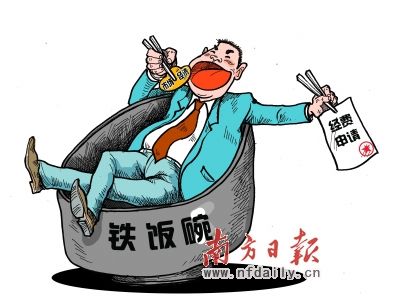There is a current blurb flitting through virtual space about a fictional meeting between Xi Jinping and Obama, who has just finished watching an episode of CCTV’s popular 舌尖上的中国后 (A Bite of China). A friend described this parody of bi-lateral mis/understanding as hilarious, another called it an example of literary talent, and yet another as nugget of cultural truth so Chinese it could not be translated!
High praise for a political side dish. So, I decided to create a taste challenge for bi-lingual readers, adapting the piece from Chinese to English. Four political facts might enhance appreciation of the spoof: (1) Obama is just Obama, but Xi Jinping is always, “General Secretary”; (2) there is an important role for overseas Chinese figured by US Ambassador to China Gary Faye Locke (骆家辉); (3) subtitled episodes of A Bite of China can be viewed on Youtube, which remains off menu for those of us dining chez Cafe le Firewall, and; (4) General Party Secretary Xi never mentions the iron rice bowl (铁饭碗), an expression used to described the difficulty of removing officials from their posts. Also of note, the expressions emphasize the acting of eating, not food. Consequently, more colloquial English would use variously use “take” or “swallow” or “suck up” or “eat” to translate 吃 — and therein, perhaps, is an experiential entry into cultural differences structuring Sino-American misunderstanding.
After viewing “A Bite of China [literally China on the Tongue]”, Obama said to General Secretary Xi Jinping, “I’ve realized that although Chinese culture consists of extensive knowlege and profound scholarship, it is really an eating culture. Consider: a job is called a rice bowl, working is called living from hand to mouth (糊口); to be employed is called getting enough to eat (混饭), getting by in style is called eating with gusto (吃得开), and things that are liked are said to whet one’s appetite(吃香); to be taken care of is called eating from the little stove (吃小灶), to spend your savings is called eating your principle (吃老本) to take advantage of a woman is called eating tofu (吃豆腐); to depend on your parents is called gnawing on the old (啃老); a man who spends a woman’s money is said to eat soft rice (吃软饭); to overwork is to eat without digesting (吃不消), to take advantage of someone is to eat an advantage (吃亏), jealousy is called eating vinegar (吃醋); to dither is called to eat indesively (吃不准), to do substandard work is to eat dry rice (吃干饭), to take advantage of anyone is also to eat tofu (吃豆腐), to be taken advantage of is to have swallowed the disadvantage (吃了亏), to be afraid to speak up is called a mute eats coptis root (哑巴吃黄连). To have nothing better to do than make trouble for others is called overeating (吃饱撑), to make a decision is called Eight Wang eats the scales (王八吃秤砣), to ignore an order is not to eat soft or hard (软硬不吃), and to have reached one’s limits is called can’t swallow and slink off (吃不了兜着走).
General Secretary Xi interupted him and said, “We should speak about Sino-American relations. Are you talking about this because you’ve overeaten?”
Obama fainted at these words!
When Obama had recovered, General Secretary Xi earnestly said, “With respect to the importance of Sino-American relations, we will eat deeply and throughly, because we haven’t any principle to eat. The way of the world is that big fish eat little fish, but Cold War thinking is no longer appetizing, and cooperating for mutual benefit is the only way to eat with gusto. Only if China and the United States join hands will the benefits be eaten together. There are those who eat at our table and secretly help others; they eat from the rice bowl of harming Sino-American relations. We eat too much bitterness because they eat vinegar, making us eat with effort to establish a partnership. We have to learn from eating the moat (吃一堑长一智), and prevent them from eating from their bowls with their eyes on the pot. This will also let the world eat heart balls of reassurance. Mister President, are you still eating indesively about these matters? If not, I’d like to dine with you in this compound.”
Obama was speachless, and said after a pause, “It really is too deep to be predicted! Only the last idea could be expressed without the character for eating!”
Gary Faye Locke was standing nearby and couldn’t resist reminding Obama, “That’s because he was actually inviting you to eat!”
奥巴马看了《舌尖上的中国》,后对习近平总书记说:我发现中华文化博大精深,其实就是吃的文化。你看:岗位叫饭碗,谋生叫糊口;受雇叫混饭,混得好叫吃得开,受人欢迎叫吃香;受到照顾叫吃小灶,花积蓄叫吃老本;占女人便宜叫吃豆腐;靠长辈生活叫啃老;男人老是用女人的钱叫吃软饭;干活多了叫吃不消,受人伤害叫吃亏,男女嫉妒叫吃醋;犹豫不决叫吃不准,办事不力叫吃干饭, 占人便宜叫吃豆腐,被占便宜叫吃了亏,还不敢声张叫哑巴吃黄连。没事找事叫吃饱撑的,下定决心叫王八吃秤砣,不听劝告叫软硬不吃,收不了场叫吃不了兜着走。
习主席打断他说:我们应该讨论中美关系,你怎么尽说这些,是不是吃饱了撑的了?奥巴马一听,当即晕倒!
奥巴马醒来后,习主席语重心长地说:对中美关系的重要性,我们一定要吃深吃透,这方面我们没有老本可吃。世界的规则就是大鱼吃小鱼,但冷战思维已不吃香,合作共赢才吃得开。只要中美两强联手,一定赢者通吃。有些人吃里扒外,专吃破坏中美关系这碗饭,跟我们争风吃醋,让我们吃了不少苦头,建设战略伙伴关系更加吃力。我们一定要吃一堑长一智,不能再让他们吃着碗里看着锅里,也让全世界吃颗定心丸。总统先生,对这些你还有什么吃不准吗,如果没有,我很愿跟你在这个庄园里共进晚餐。
奥巴马目瞪口呆,半晌才说:果然深不可测!一席话只有最后一句没有吃字!骆家辉在旁忍不住提醒:总统先生,习主席最后这句话您听懂了吗,他是要您请他撮一顿!。。。

Pingback: Dishing on Sino-American Relations · Global Voices